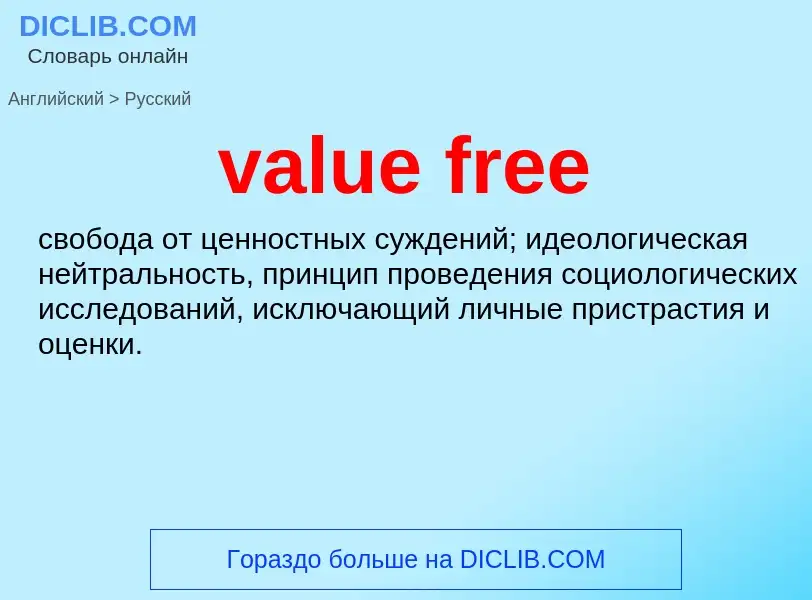Traducción y análisis de palabras por inteligencia artificial ChatGPT
En esta página puede obtener un análisis detallado de una palabra o frase, producido utilizando la mejor tecnología de inteligencia artificial hasta la fecha:
- cómo se usa la palabra
- frecuencia de uso
- se utiliza con más frecuencia en el habla oral o escrita
- opciones de traducción
- ejemplos de uso (varias frases con traducción)
- etimología
value free - traducción al ruso
[vælju:'ædid]
бухгалтерский учет
добавленная стоимость (разница между ценностью продукции фирмы или отрасли и стоимостью сырья, комплектующих изделий и услуг (кроме рабочей силы, платы за землю), приобретаемых для обеспечения выпуска этой продукции)
статистика
условно-чистая продукция
экономика
стоимость
добавленная обработкой
условно чистая продукция
синоним
Definición
Wikipedia
Positive economics (as opposed to normative economics) is the part of economics that deals with positive statements. That is, it focuses on the description, quantification and explanation of economic phenomena. It deals with empirical facts as well as cause-and-effect behavioral relationships and emphasizes that economic theories must be consistent with existing observations and produce testable, precise predictions about the phenomena under question. Positive economics as a science concerns analysis of economic behavior to determine what is true. Examples of positive economic statements are "the unemployment rate in France is higher than that in the United States," or “an increase in government spending would lower the unemployment rate.” Either of these is potentially falsifiable and may be contradicted by evidence. Positive economics as such avoids economic value judgments. For example, a positive economic theory might describe how money supply growth affects inflation, but it does not provide any instruction on what policy ought to be followed. This contrasts with normative economic statements, in which an opinion is given. For example, “Government spending should be increased” is a normative statement.

